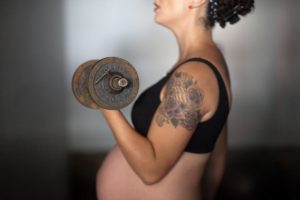While you should always seek medical advice when dealing with infertility, there are a few things about the evasive subject of ovulation that you are able to better educate yourself on, in order to help you on your way.
Secondary infertility happens more often than spoken about in mainstream media. It is when a woman who has had a successful previous pregnancy, suffers the inability to become pregnant again, or to carry a second pregnancy to term.
Whether you’ve previously had children, or you are trying for your first child, knowledge is power. The more a woman becomes aware of what happens within her own body, the closer she is in achieving her goals.
A woman cannot become pregnant naturally without the miracle of ovulation. Not all cycles are ovulatory cycles and just being aware of certain factors may increase the chance of ovulatory awareness and knowledge about your own journey and menstrual cycle.
For instance. The length of your cycle may differ from month to month, although the length of your luteal phase never changes. The luteal phase is the second half of your menstrual cycle that marks when ovulation has occurred. It begins after ovulation and ends upon the onset of your period.
Hindsight is key when trying to make a baby. If unsuccessful in your endeavour to conceive at the end of a cycle, empower your situation by arming yourself with hindsight.
Your luteal phase is generally a two week period, which gives you the opportunity to count back 15 days (remember your luteal phase begins after ovulation has occurred) to determine when you did ovulate, or in fact if you did ovulate.
It may help to keep a journal to mark down moods, and vaginal discharge (yes of course I said it, you knew we were going to get to it at some point). It may also help to note down any changes in your body during these stages. Changes such as breast tenderness, ovary pain, how you’ve slept, headaches, aversion to any types of food or smells. This may seem tedious, but it becomes helpful when trying to decipher whether you are pregnant in later months when trying to conceive. Eases the hopeful pregnancy fog and gives you a more practical insight into reality. By writing this information down, again, you are arming yourself with the power of hindsight and knowledge about what is “normal” for your body during the luteal phase.
Trying to conceive is at times a scary, lonely and confusing ordeal, although it doesn’t necessarily need to be. There are methods available that help you try to pin point when (and if) ovulation has occurred.
The Billings Method is used by many women to monitor their fertility by paying particular attention to the sensation at their vulva (hard or soft like cartilage) and taking note of the consistency of any vaginal discharge.
Another way to monitor ovulation is by charting your basal body temperature, which is taken first thing every morning before you get out of bed. Your body temperature is meant to peak right before ovulation, and spike shortly after. This is a great way to work out whether your body is in fact ovulating as it should.
For those who love peeing on a stick, there are ovulation tests to help narrow the timing of the big egg drop.
All in all ovulation is a pretty big deal. Here are some facts that you probably didn’t know happen to you at the time of ovulation:
You dress better – yes that’s right. You pull out all the stops. You feel pretty and subconsciously want to attract the opposite sex in order to make reproduction happen! Note when you choose the low cut top and pop that in your diary.
Your voice gets higher – hormones baby. A way to monitor this is to video tape you singing Mariah Carey every day and once you actually hit the high notes, you know it’s go time.
Your sense of smell is heightened and you’re attracted to muskier scents at this time, not to mention musclier men. It’s science!
Your pheromones are on fleek and you yourself are more attractive to the opposite sex on a hormonal level.
You are “in the mood” if you know what I mean. This is nature’s way of ensuring that you maximise the optimum time to fall. No “headaches” during this time!
You take more selfies. Yes it’s true! Go and have a look at your Instagram account and see for yourself.
So whatever method you find useful to help you on your journey, arm yourself with the knowledge about your own body and how it works. It may be the most beneficial research you’ll ever do!










